Incorporating fresh, home-grown produce into pets’ diets brings myriad benefits, ranging from improved health to a reduced carbon pawprint. This guide explores a variety of plants that can be easily cultivated at home to nourish pets, meeting their nutritional needs in a sustainable manner. Embracing gardening for pets encourages a deeper connection with nature and the food chain, ensuring that the furry members of the family enjoy fresh, wholesome snacks. It’s a journey towards healthier, happier pets and a greener planet, emphasizing the joy and rewards of gardening.
Contents
Carrots
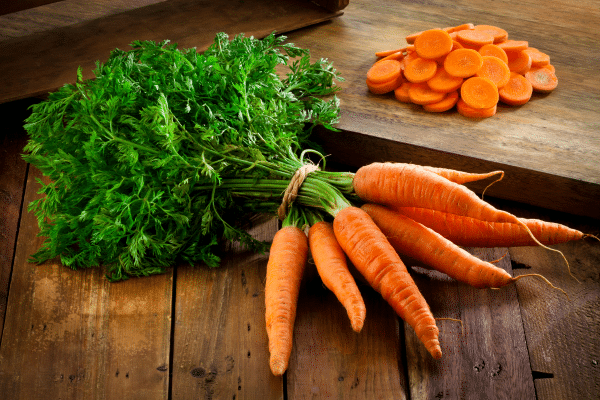
Carrots are renowned for their nutritional benefits, making them a superb snack for pets such as dogs and rabbits. They are packed with vitamins, minerals, and fiber, contributing to overall health, including dental health due to their crunchy texture. Carrots are low in calories, which makes them an ideal treat for pets on a weight management plan. Additionally, the beta-carotene in carrots supports eye health, making them not just a tasty but also a health-boosting choice for pet diets.
Growing carrots is a straightforward endeavor that brings great rewards. Suitable for various climates, carrots require minimal space and can thrive in deep, well-drained soil with plenty of sunlight. Regular watering ensures steady growth, leading to a bountiful harvest. When introducing carrots to pets, it’s advisable to serve them raw or lightly cooked to preserve their nutritional value, slicing them to suitable sizes to prevent choking hazards and facilitate easy digestion.
Apples
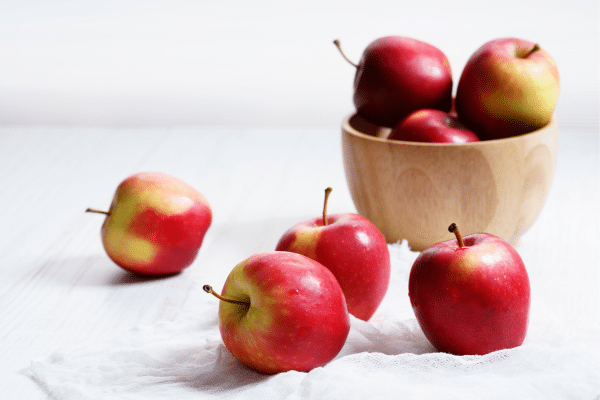
Apples, when served without seeds, offer a sweet, hydrating snack for pets, loaded with vitamins and fiber. This fruit is particularly beneficial for pets due to its ability to support hydration and provide essential nutrients, including vitamin C, which boosts the immune system. However, it’s crucial to remove all seeds before serving, as they contain cyanide, which is harmful to pets. Apples can aid in cleaning residue off a pet’s teeth, contributing to dental health.
Cultivating apple trees can be a rewarding component of a pet-friendly garden. Selecting the right variety is key, with some being more suitable for certain climates than others. Apple trees require well-drained soil and a sunny position to flourish. When it comes to serving apples to pets, ensure they are cut into bite-sized pieces, removing the core and seeds to prevent any risk of choking or toxicity. This careful preparation allows pets to enjoy the natural sweetness and health benefits of apples safely.
Pumpkin
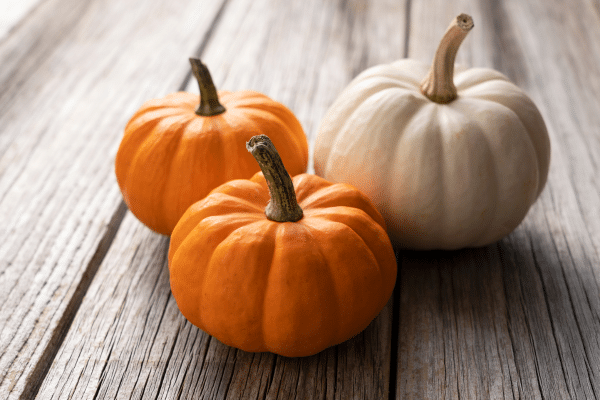
Pumpkin is highly regarded for its digestive health benefits for pets. Its high fiber content makes it an excellent choice for pets experiencing digestive issues, such as constipation or diarrhea. This versatile vegetable can regulate bowel movements, providing a natural remedy for digestive discomfort. Pumpkin is also rich in essential nutrients, including vitamin A, which supports vision, skin, and coat health, making it more than just a seasonal treat.
Growing pumpkin is a fulfilling project that requires space, as the vines spread widely. Planting pumpkin seeds in a sunny, well-drained area of the garden after the last frost ensures a successful yield. Pumpkins are relatively low-maintenance, needing regular watering and occasional feeding. Once harvested, pumpkin can be cooked and pureed or cut into small, manageable pieces for pets. Introducing pumpkin into a pet’s diet should be done gradually, ensuring it is well-received and does not cause gastrointestinal upset.
Green Beans
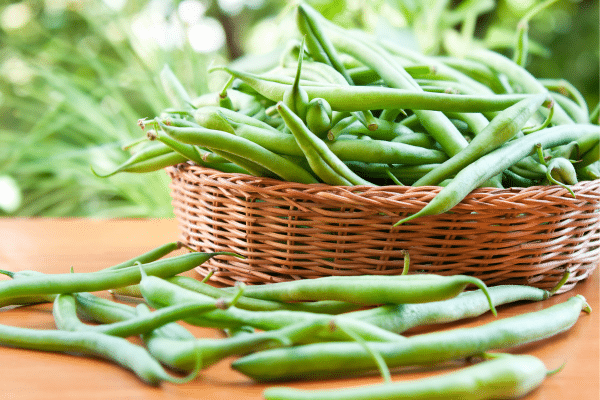
Green beans serve as an excellent snack for pets, especially for those needing weight management due to their low-calorie content and nutritional benefits. Rich in fiber, vitamins, and minerals, green beans can support overall health while helping pets feel full and satisfied without the added calories. This makes them an ideal treat for pets on a diet, providing essential nutrients without contributing to weight gain. Moreover, their crunchy texture can help clean teeth, promoting dental health in pets.
Cultivating green beans is a rewarding process that suits gardeners of all levels. These plants can thrive in a variety of conditions, from full sun to partial shade, and don’t require much space, making them suitable for gardens and containers alike. Regular watering and occasional fertilizing will ensure a healthy crop of green beans. When introducing green beans to a pet’s diet, they should be served raw or steamed, cut into small pieces to prevent any choking hazard and make digestion easier.
Blueberries
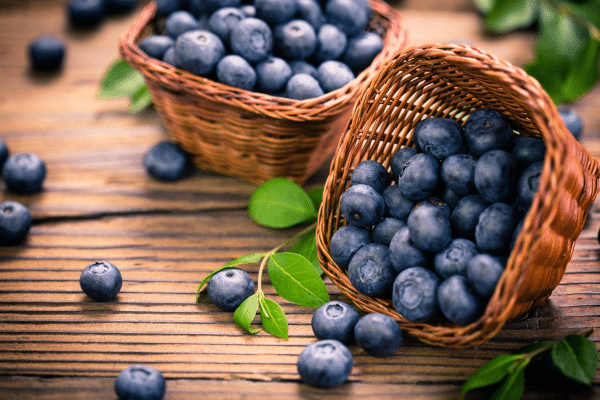
Blueberries are antioxidant-rich fruits that offer numerous health benefits for pets, including supporting urinary health and potentially preventing cancer. These small, but mighty fruits are an excellent low-calorie treat, packed with vitamins C and K, fiber, and antioxidants. Feeding pets blueberries can contribute to their overall health and well-being, supporting the immune system and preventing inflammation. Additionally, their small size makes them perfect for a quick snack or a reward during training sessions.
Growing blueberries requires some preparation, particularly in adjusting soil pH to acidic conditions, but the rewards are bountiful. Blueberry bushes can produce fruit for years with proper care, including adequate sunlight, watering, and occasional fertilizing. When harvested, blueberries can be served fresh or frozen as a refreshing treat. It’s a simple way to add a nutritional boost to a pet’s diet, offering a natural and tasty snack that pets love.
Sweet Potatoes
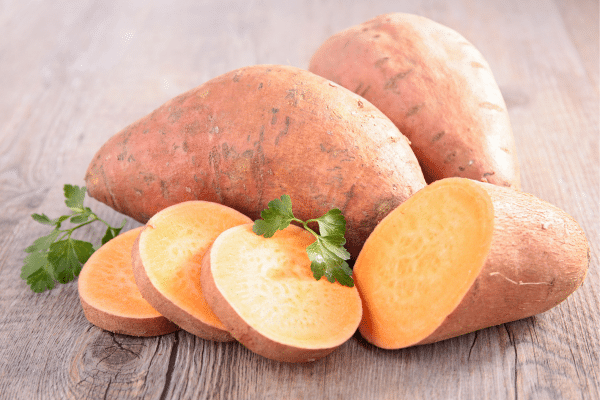
Sweet potatoes are a fantastic source of vitamins A, C, and B6, fiber, and beta-carotene, making them an excellent dietary addition for pets. Their high fiber content aids in digestive health, while the rich vitamin profile supports immune function, skin, and coat health. Sweet potatoes are also beneficial for pets needing a low-fat diet, providing a satisfying yet healthy treat. This versatile vegetable can be cooked in various ways, offering a sweet taste that most pets enjoy.
The cultivation of sweet potatoes in a home garden is an enjoyable endeavor that requires warm soil and plenty of sun. They prefer well-drained soil and do not require extensive care beyond regular watering and occasional pest management. Once harvested, sweet potatoes can be baked or boiled and then mashed or cut into small pieces to be fed as a treat or mixed with regular food. Introducing sweet potatoes into a pet’s diet gradually is important to ensure they are well tolerated.
Zucchini
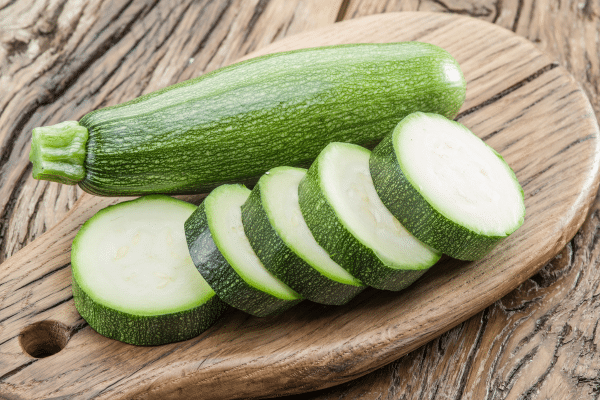
Zucchini is an excellent choice for pet snacks due to its high water content and low-calorie profile, making it especially suitable for pets on a weight management plan. This vegetable provides hydration while also delivering important nutrients like potassium and vitamin C without the added calories of commercial pet treats. Zucchini’s mild flavor and soft texture, when cooked, make it appealing to many pets, and it can be a good way to add variety to their diet.
Growing zucchini is relatively simple and rewarding, as the plants are prolific producers under the right conditions. They require warm soil, plenty of sunlight, and regular watering to thrive. Zucchini can be harvested throughout the summer, providing a steady supply of fresh vegetables. When preparing zucchini for pets, it’s important to serve it plain, without added spices or oils, and cut into small, manageable pieces to ensure it’s easy for pets to eat and digest.
The Bottom Line
Choosing to grow plants to feed pets offers a range of benefits, from enhancing their diet with fresh, nutritious options to reducing the environmental impact of pet care. Each plant discussed provides unique health benefits and can be easily integrated into a pet’s diet with a little preparation. However, it’s crucial to consult with a veterinarian before making any significant changes to a pet’s diet to ensure these new foods are safe and beneficial for them. Starting with one or two plants and gradually introducing them allows pets to adjust and also gives pet owners the chance to see what works best for their furry friends. This approach to pet nutrition fosters a healthier, more sustainable lifestyle for pets and their owners.


